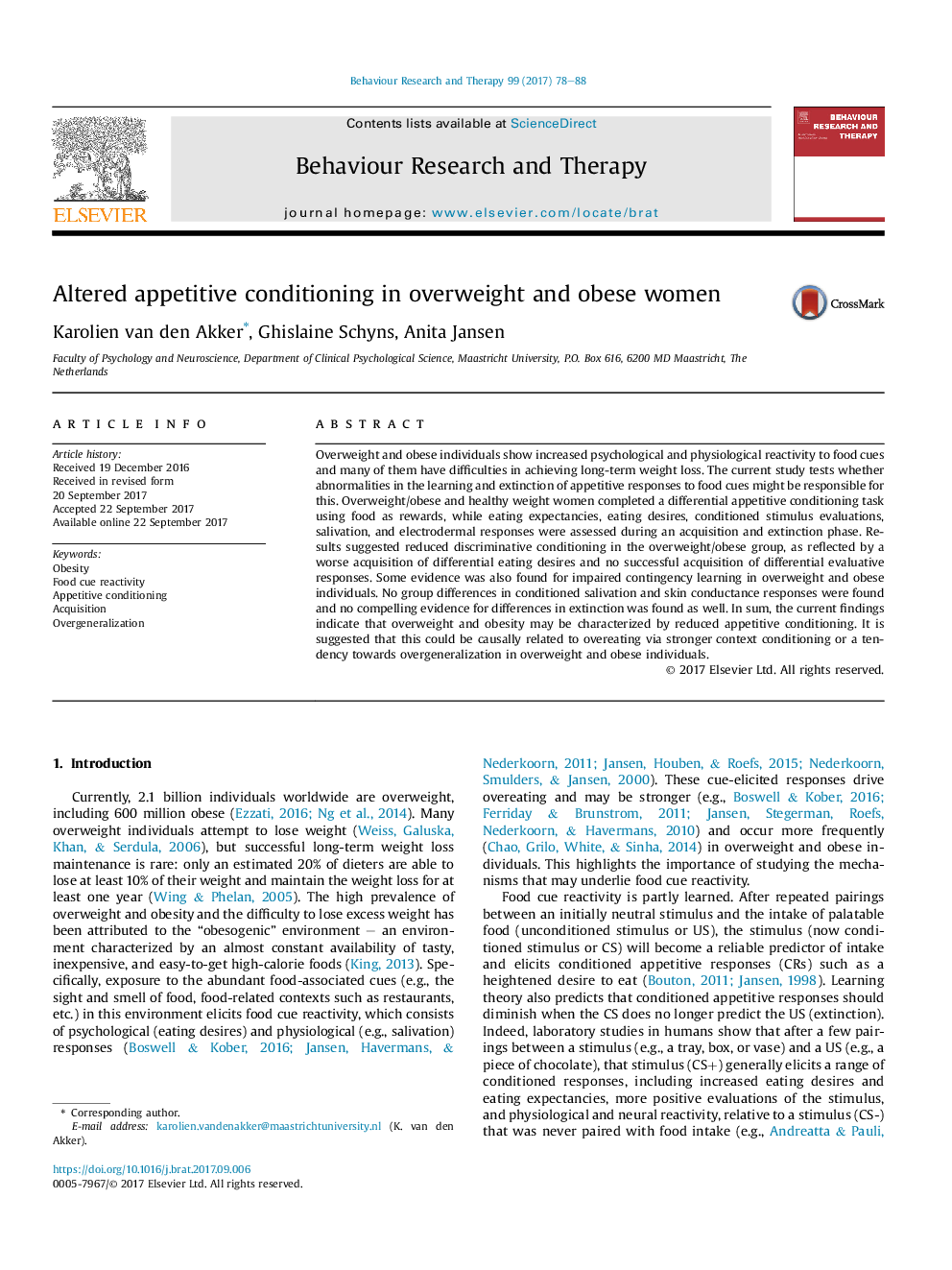| Article ID | Journal | Published Year | Pages | File Type |
|---|---|---|---|---|
| 5038113 | Behaviour Research and Therapy | 2017 | 11 Pages |
â¢Overweight and healthy weight women completed an appetitive conditioning task.â¢Self-report and psychophysiological outcome measures were assessed.â¢Overweight women showed reduced appetitive conditioning.â¢This might indicate a tendency towards overgeneralization or stronger context conditioning.
Overweight and obese individuals show increased psychological and physiological reactivity to food cues and many of them have difficulties in achieving long-term weight loss. The current study tests whether abnormalities in the learning and extinction of appetitive responses to food cues might be responsible for this. Overweight/obese and healthy weight women completed a differential appetitive conditioning task using food as rewards, while eating expectancies, eating desires, conditioned stimulus evaluations, salivation, and electrodermal responses were assessed during an acquisition and extinction phase. Results suggested reduced discriminative conditioning in the overweight/obese group, as reflected by a worse acquisition of differential eating desires and no successful acquisition of differential evaluative responses. Some evidence was also found for impaired contingency learning in overweight and obese individuals. No group differences in conditioned salivation and skin conductance responses were found and no compelling evidence for differences in extinction was found as well. In sum, the current findings indicate that overweight and obesity may be characterized by reduced appetitive conditioning. It is suggested that this could be causally related to overeating via stronger context conditioning or a tendency towards overgeneralization in overweight and obese individuals.
